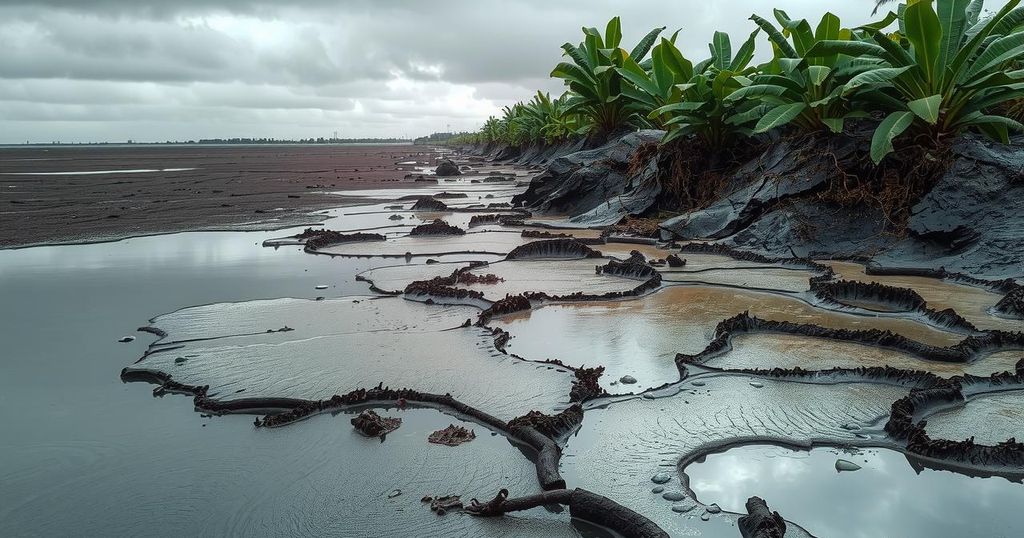Ecuador is tackling an environmental emergency due to an oil spill affecting several rivers and leaving many residents without drinking water. The spill, which started last Thursday from a ruptured pipeline, is estimated to have released about 200,000 barrels of oil. Approximately half a million people are impacted, with urgent measures being taken to restore water supply and mitigate environmental damage.
Ecuador is currently addressing a growing environmental crisis following an oil spill that has contaminated multiple rivers, significantly impacting local communities and their access to drinking water. An environmental emergency was declared after the spill, which is believed to have been caused by a landslide that ruptured a major pipeline, releasing tens of thousands of barrels of oil.
As reported, the spill originated in the Esmeraldas River and has since spread to at least four other waterways, affecting approximately half a million residents, many of whom rely on these rivers for potable water. Esmeraldas’ mayor, Vicko Villacis, emphasized that the local population is severely impacted by the lack of access to drinking water.
In response to the emergency, the government has mobilized resources to mitigate the damage. State-owned Petroecuador, which operates the damaged pipeline, is using tanker trucks to recover spilled oil, especially in areas dependent on fishing for livelihood. Although the exact volume of the spill has not been officially confirmed, local estimates suggest around 200,000 barrels were released.
Additionally, three ships are set to deliver drinking water to affected areas starting Tuesday. The pipeline is part of the Trans-Ecuadorian Pipeline System (SOTE), which typically transports 360,000 barrels daily from the Amazon to the Pacific coast. In Rocafuerte, a fishing village, local fishermen expressed concern over the impact of the spill on their livelihood, with one resident stating that, “If it continues like this, we won’t be able to fish anymore.”
Ecuador produced approximately 475,000 barrels of oil per day in 2024, underscoring the significance of oil as a primary export commodity for the nation.
The crisis in Ecuador highlights the severe environmental and social impacts of infrastructure failures, particularly in regions dependent on natural resources. The spread of the oil spill poses a significant risk to local ecosystems and affects the livelihoods of thousands, necessitating urgent remedial action from the government and Petroecuador to restore potable water access and rehabilitate affected areas. Local residents, particularly fishermen, face significant challenges as their primary source of livelihood is threatened. Addressing these issues will require coordinated efforts to ensure both environmental protection and community support in the aftermath of this disaster.
Original Source: www.france24.com




